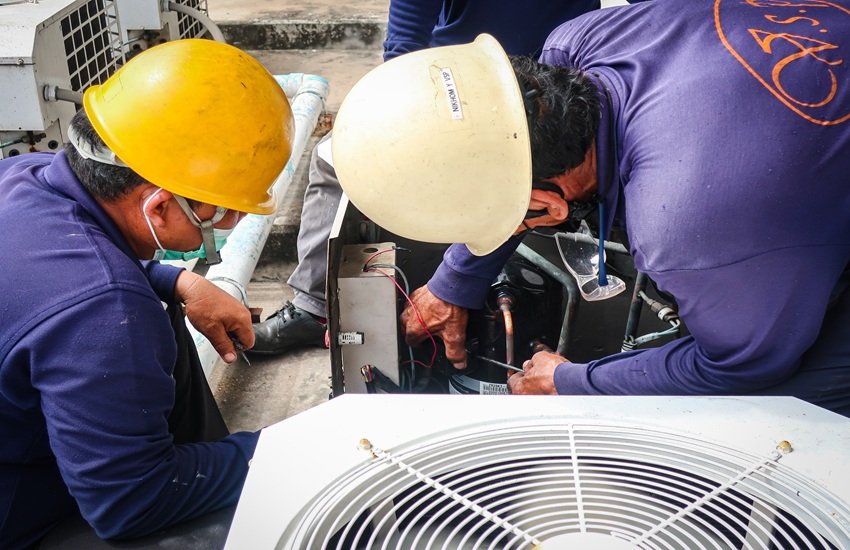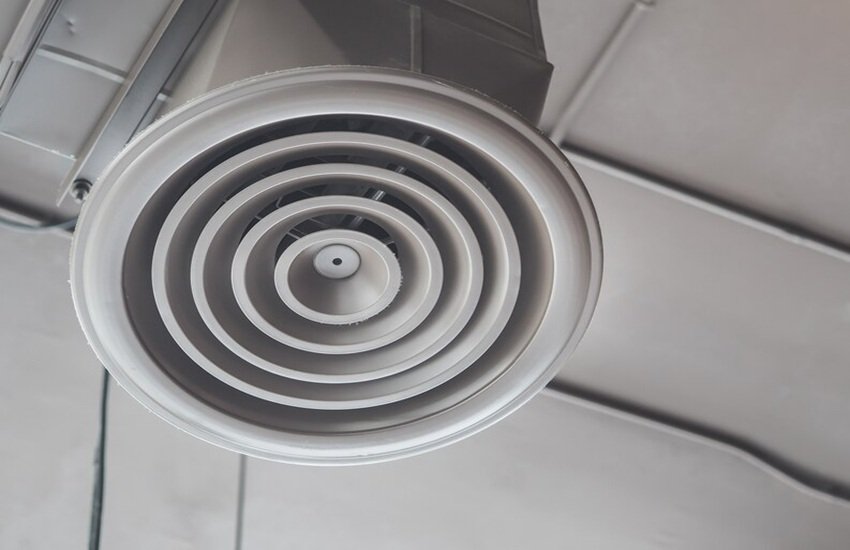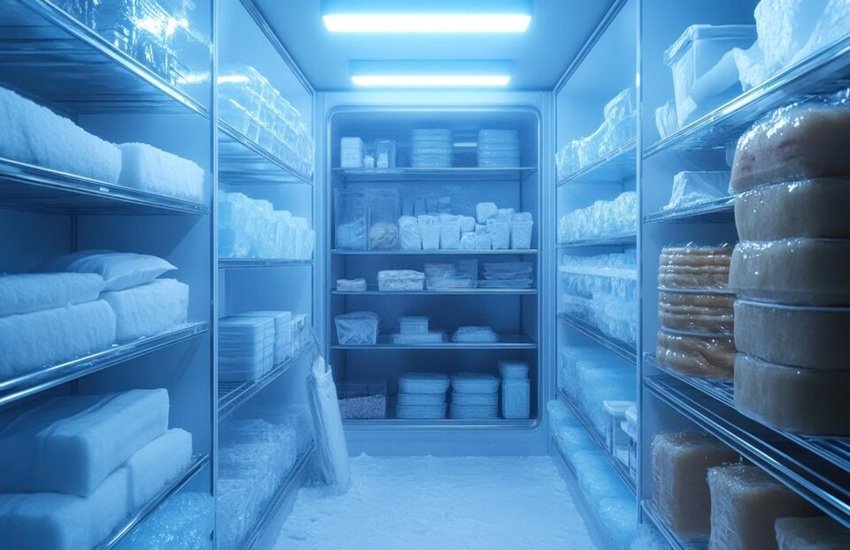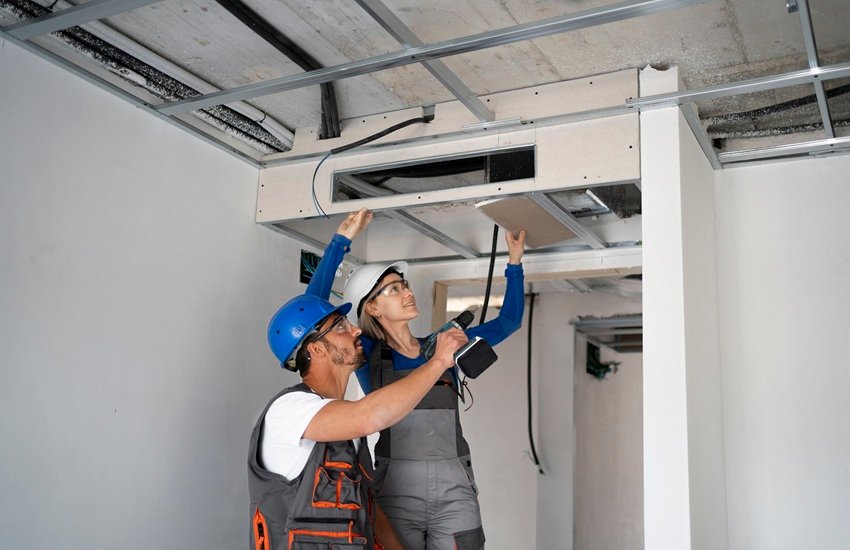In the ever-growing and competitive commercial HVAC business, business people are in constant search for improved and cost-effective methods that can be used to regulate the climate indoors. Common trends in HVAC systems concern energy conservation, environmentally friendly approaches, and intelligent solutions that change the way companies control their climate. The major dynamics are seen to be defining the commercial HVAC systems of 2025, the advantages and disadvantages of the changes, and the prospects for managing the business climate.
1. Adoption of Smart HVAC Technology
The commercial HVAC industry is fast embracing the use of smart HVAC technology. Through connecting IoT & Automation, companies can have independent remote access to their HVAC technologies & achieve better energy utilization & comfort.
Key Benefits:
-
Real-time monitoring: Measuring devices record temperature, humidity, and system efficiency; thus making it possible to make changes on the go.
-
Energy optimization: Automated controlling systems can recognize use frequency and adjust settings that may lead to waste energy.
-
Predictive maintenance: Notifications are provided to look out for certain problems, that may cause the system to go down unexpectedly.
Some of the commercial buildings that install smart HVAC systems realize it is easy to achieve the best comfort and efficiency; therefore, it is a decision that shapes big commercial operations.
2. Focus on Energy-Efficient Solutions
It is already no longer possible for energy efficiency to remain as an option, it has become mandatory. As energy costs increase, solutions that decrease operating costs have become the new targets in commerce.
Popular Choices:
-
Geothermal HVAC systems: These systems work on the principle of the firm earth’s temperatures for heating and AC. While it may be more expensive up front, the cost savings along with being kinder to the environment make it ideal for companies to incorporate.
-
Ductless HVAC service: Such systems are economical and ideal for the structure that has to
manage heating/cooling in one area at the same time with one more section as the ducted systems are rather power-wastage.
This is also in tandem with the sustainability concerns that shareholders have placed strongly at the corporate level to boost a company’s image socially among clients and partners through investing in energy-efficient systems.
3. The Role of Regular HVAC Maintenance
The importance of keeping commercial HVAC systems working right cannot be under-emphasized particularly concerning efficiency, durability, and cost implications. Scheduling routine maintenance for HVAC implies that it runs optimally and that there will not be many cases of system failure which are unproductive for business organizations.
Maintenance Checklist:
-
Inspecting filters, coils, and fins for cleanliness.
-
Monitoring refrigerant levels and ensuring proper airflow.
-
Checking for leaks and system wear and tear.
Not only are repair costs reduced, but also the quality of the indoor air is increased, resulting in improved employee and customer health.
4. Sustainability with Green HVAC Solutions
The idea of sustainability has now created a trend in the commercial HVAC industry with innovations on the move. Organizations are more and more choosing green solutions to reduce their ecological footprint while meeting regulations.
Green Practices in HVAC:
-
Employment of geothermal HVAC systems in renewable power for heating and cooling.
-
The sealed package also entails putting in efficient units with low emissions of greenhouse gases.
-
While most of these techniques help to conserve energy wastage, the current upgrade plan includes the installation of ductless HVAC systems to minimize such wastage.
New constructions are a common trend among many businesses, and many of these businesses are also incorporating green business solutions into older systems.
5. Cost Analysis: HVAC Installation and Repairs
HVAC installation cost and repair costs matter most where commercial entities are thinking of investing in HVAC systems upgrades. It follows the size and complexity of the system and the kind of building in question.
Factors Affecting Installation Costs:
-
The type of system (ducted, ductless, or geothermal).
-
Customizations like zoning and smart controls.
-
Building size and layout.
On the other hand, commercial HVAC system repair expenses can be overlooked especially when it is still in its early days so to speak and regular maintenance and upgrading is done. Managers of different companies should engage skilled HVAC contractors who should offer clear charges and quality services.
6. Emerging Technologies in HVAC Systems
The HVAC industry as a commercial application area is growing fast and innovations keep on indicating higher efficiency and control. Some noteworthy innovations include:
-
Variable Refrigerant Flow (VRF) systems: Allow precise temperature control in different zones.
-
Advanced HVAC software: Offers real-time data analytics for performance optimization.
-
Heat recovery systems: Capture and reuse heat energy, improving efficiency.
These developments are also not just enhancing comfort standards but also decreasing energy use by a large amount.
7. Challenges in the Commercial HVAC Industry
Despite the progress, the commercial HVAC industry faces challenges like:
-
High upfront costs for geothermal HVAC systems and smart solutions.
-
Training technicians to manage advanced systems.
-
Compliance with changing energy and environmental regulations.
That said, companies stand to benefit overwhelmingly from such technologies and services in terms of long-term energy cost savings and optimization.
8. The Future of the Commercial HVAC Industry
Looking ahead, the commercial HVAC industry is set to embrace:
-
AI-driven systems for predictive maintenance and energy optimization.
-
Hybrid HVAC systems combine traditional and renewable energy sources.
-
Increased focus on indoor air quality (IAQ) to create healthier workspaces.
As environmental conservationism continues to be a central theme of practice, there will be widespread incorporation of ductless HVAC systems, geothermal HVAC systems, and wellness technology.
Key Takeaways for Businesses
If you’re considering an HVAC upgrade or installation for your commercial property, keep these points in mind:
-
Substitute to cheaper and more environmentally friendly products such as geothermal heating and ventilation or ductless HVAC service.
-
He maintains that routine checkups for HVAC systems are important to avoid health risks and enhance the durability of the system.
-
Research regarding Intelligent Systems used in the management of systems to enhance their efficiency and energy consumption.
-
Consult with HVAC experts and find out what methods will be most effective in your building.




